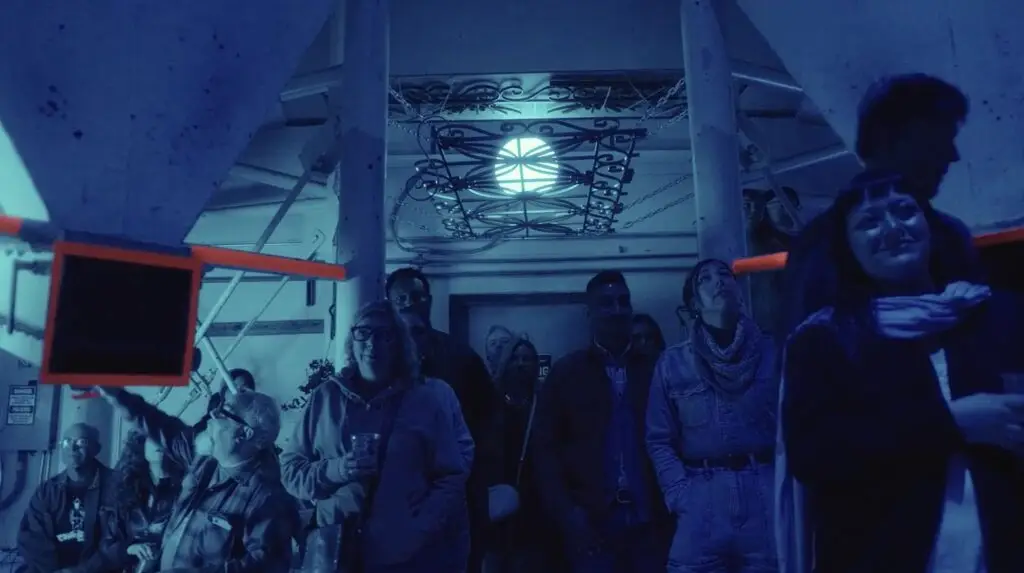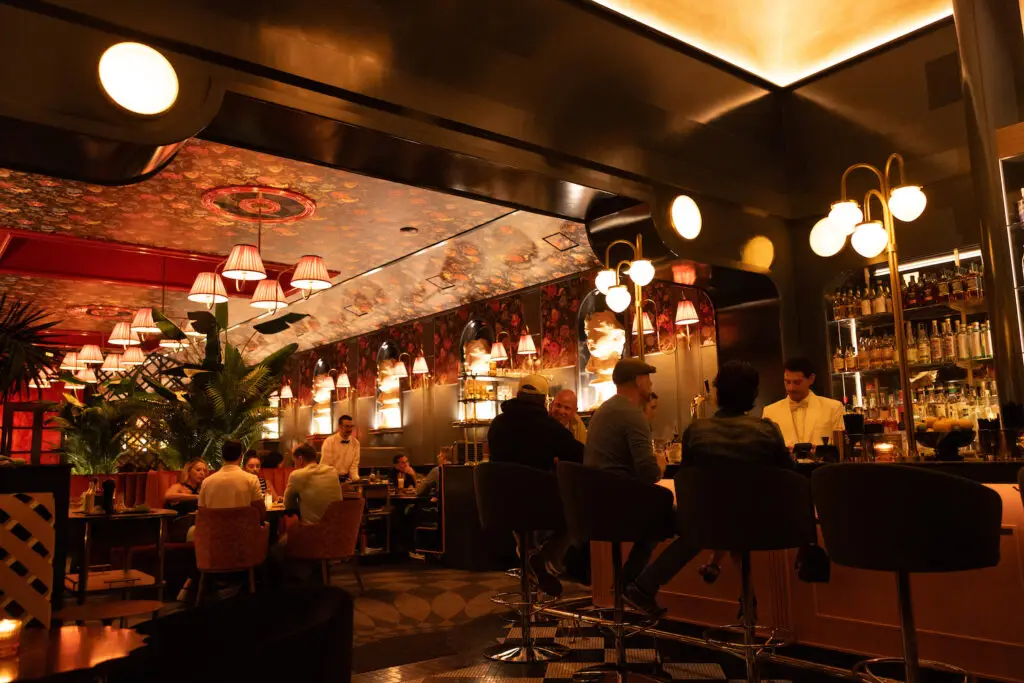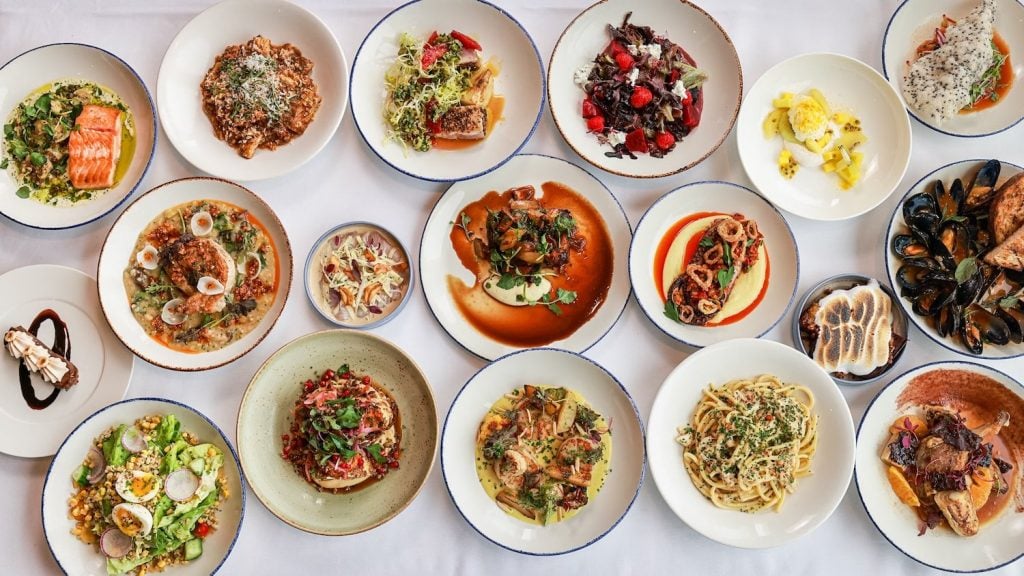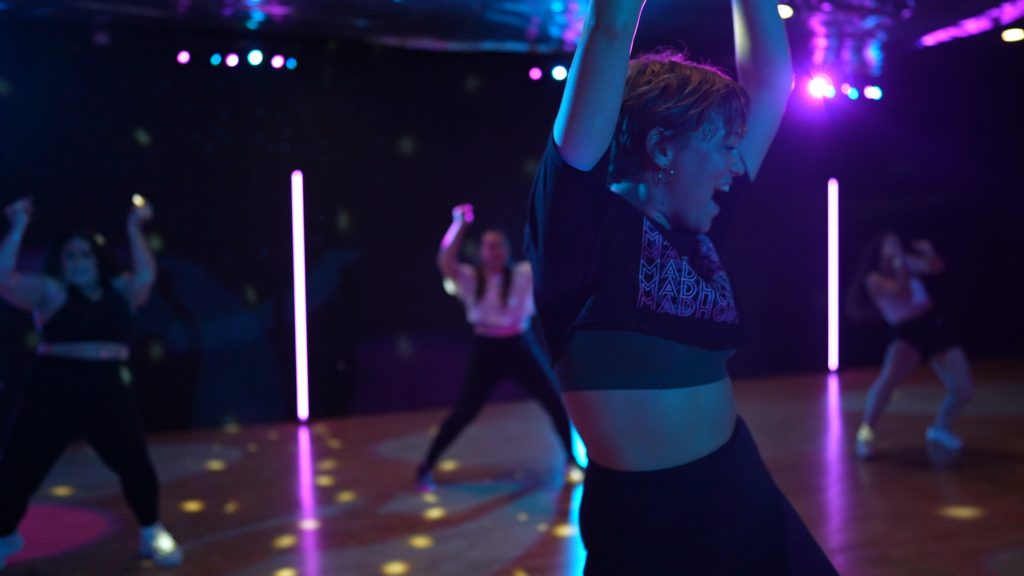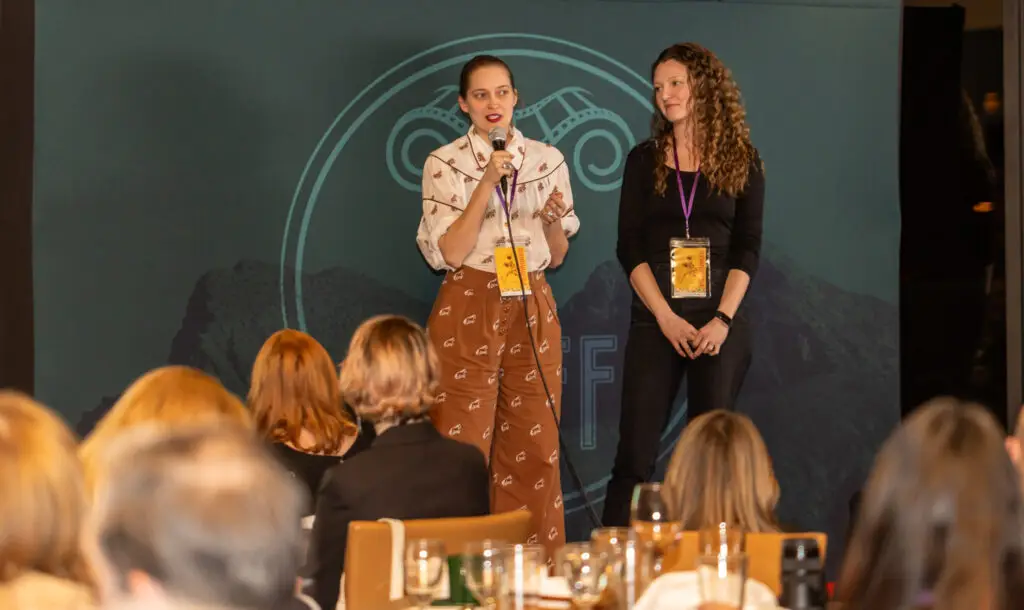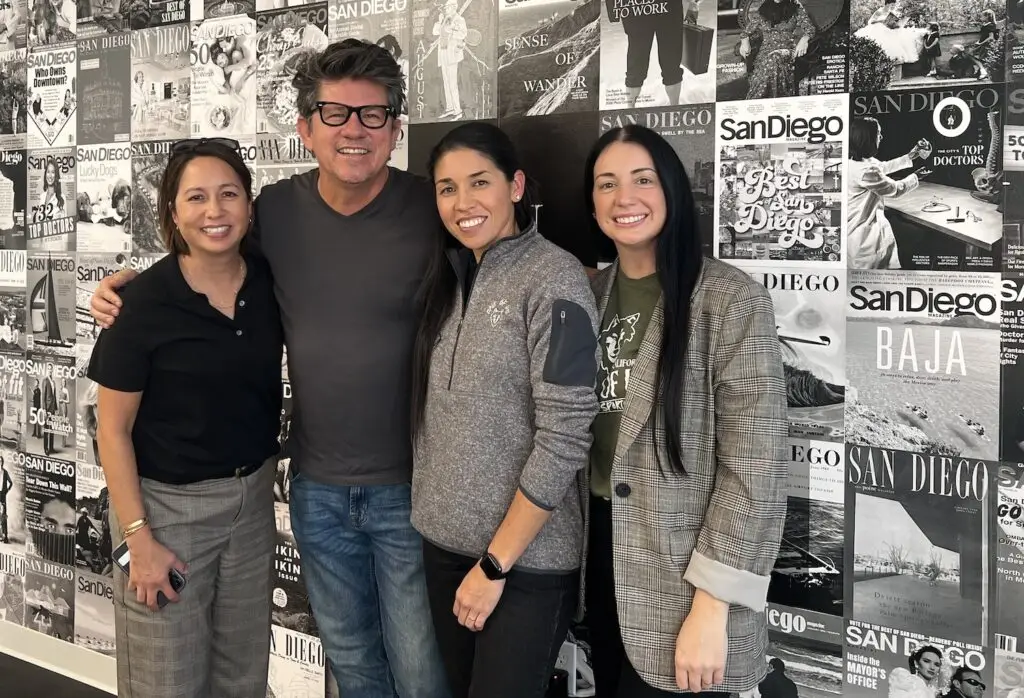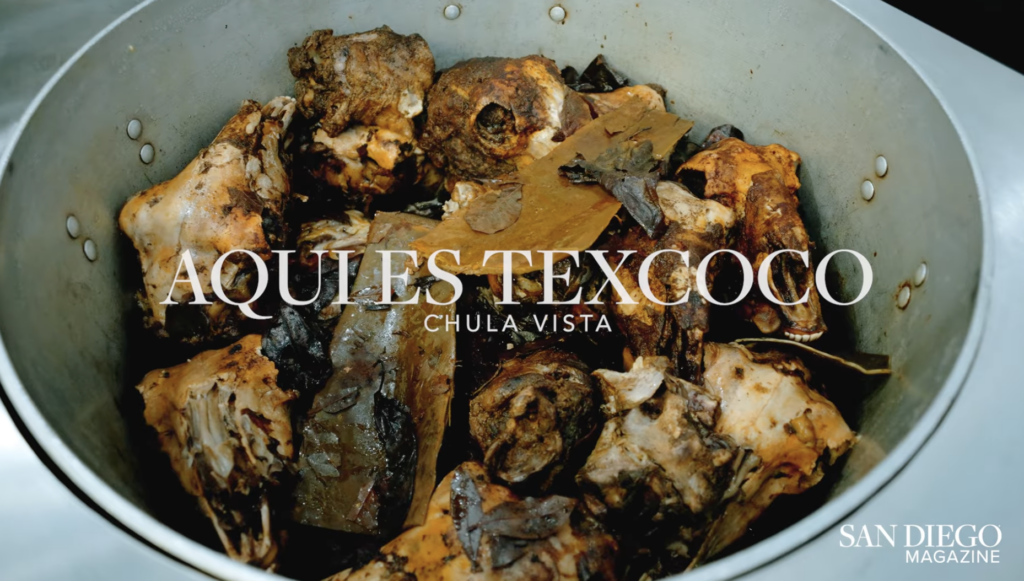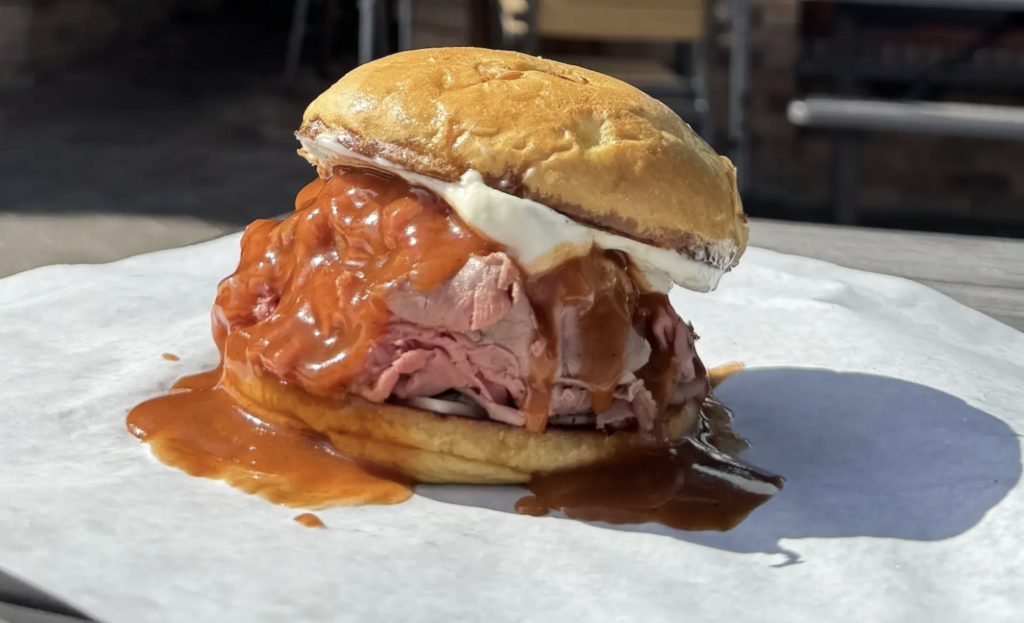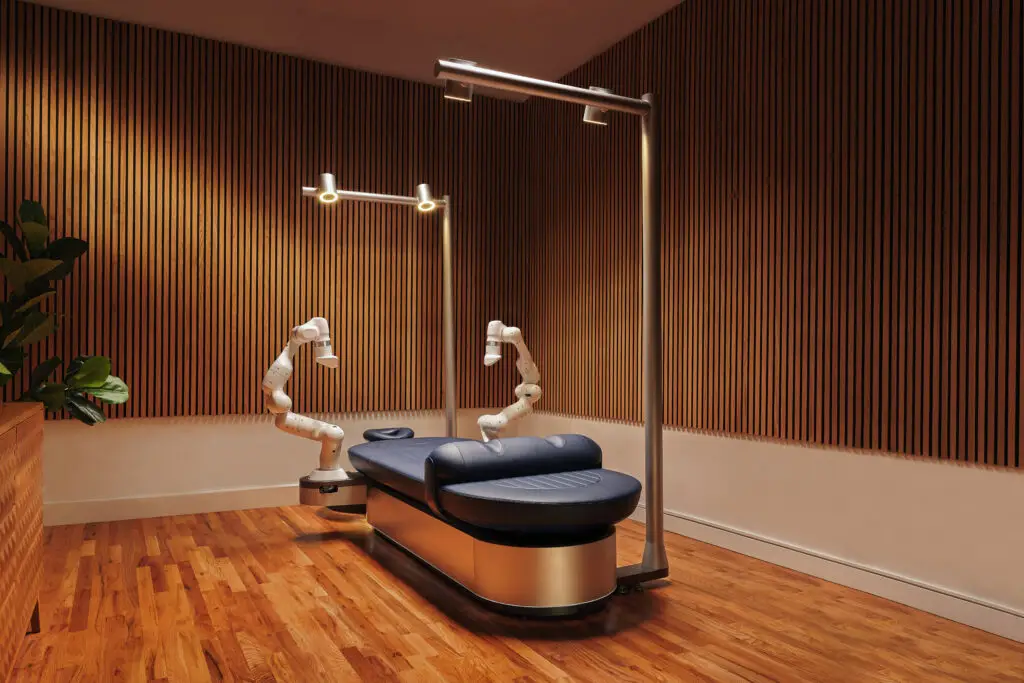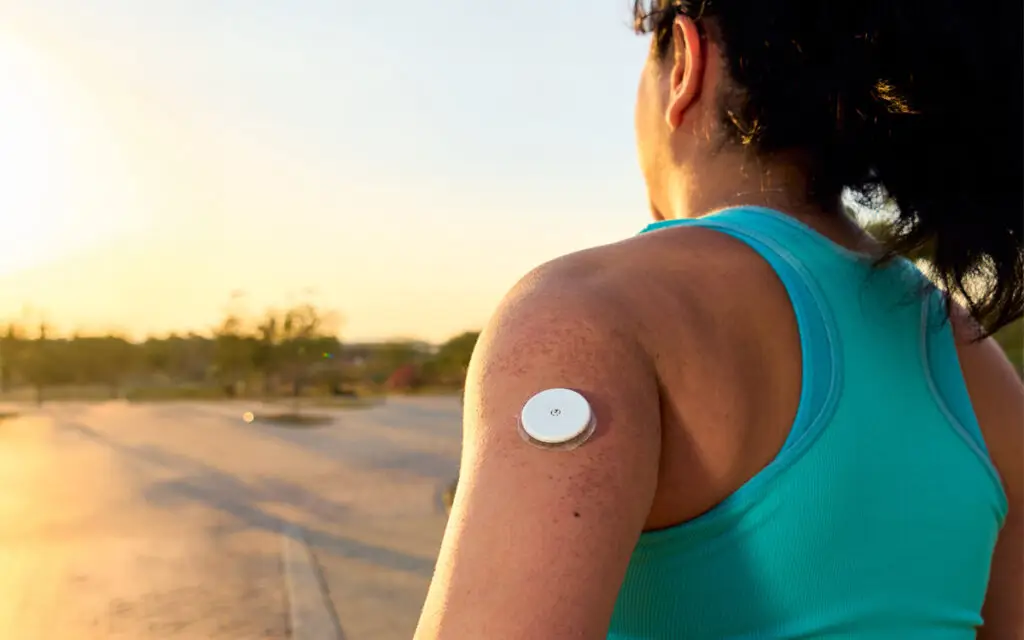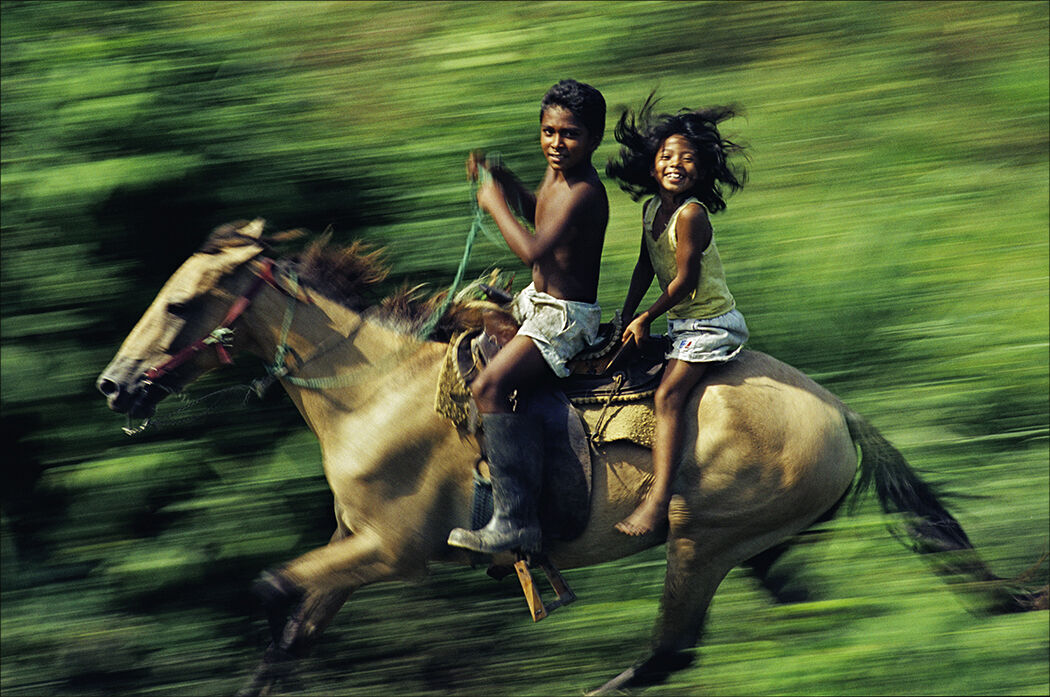
CHIAPAS RACERSYoungsters race their horse next to a speeding freight train that’s loaded with Central American stowaways struggling to reach the border of the United States. The sight of the smiling children provided about 30 seconds of joy for refugees fleeing poverty and terror. The end station came only to the brave and the lucky.
August, 2000; Chiapas, Mexico.
Don Bartletti
“My biggest friend is not the camera. It’s time,“ says Don Bartletti, a Pulitzer Prize-winning photojournalist who lives in his childhood home in Vista.
Over the course of a 40-year career covering every conceivable dynamic about immigration, Bartletti waited. He lingered in the most unsavory, unsafe places with one goal: to gain trust. Aboard 50-cent migrant rafts and the hot, greasy death trains of Central America—known as “La Bestia”—Bartletti embedded himself with the US Border Patrol, the Mexican Federal Police, and migrant families across the US, South America, and Central America to capture his subjects from every angle.
The exhibit Elusive Moments–Enduring Stories at the Oceanside Museum of Art (now through May 23) is a stirring sample of his award-winning oeuvre. The San Diego native began his work at the San Diego Union in 1977—back when the border was, he says, “a smuggler’s paradise”—and went on to the Los Angeles Times, covering illegal immigration and subjects related to it. On his beat: U.S. deportations, Mexico’s drug war, Central American migrant children, bilingual education, crossborder commerce, and the 27-year documentation of four particular immigrants.
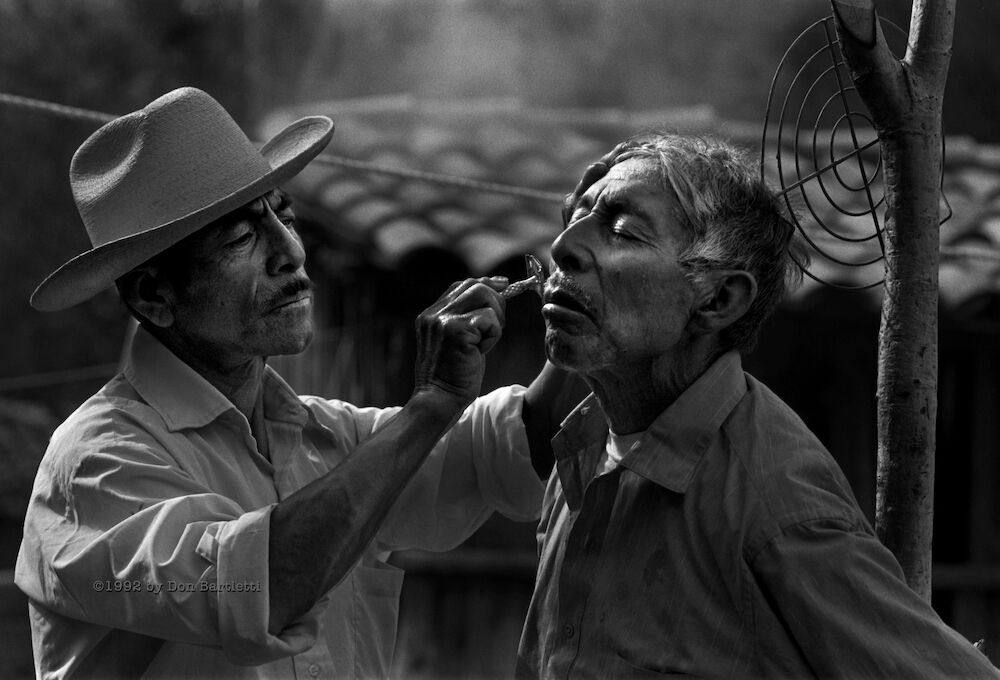
Don Bartletti – Filial Devotion
Don Bartletti
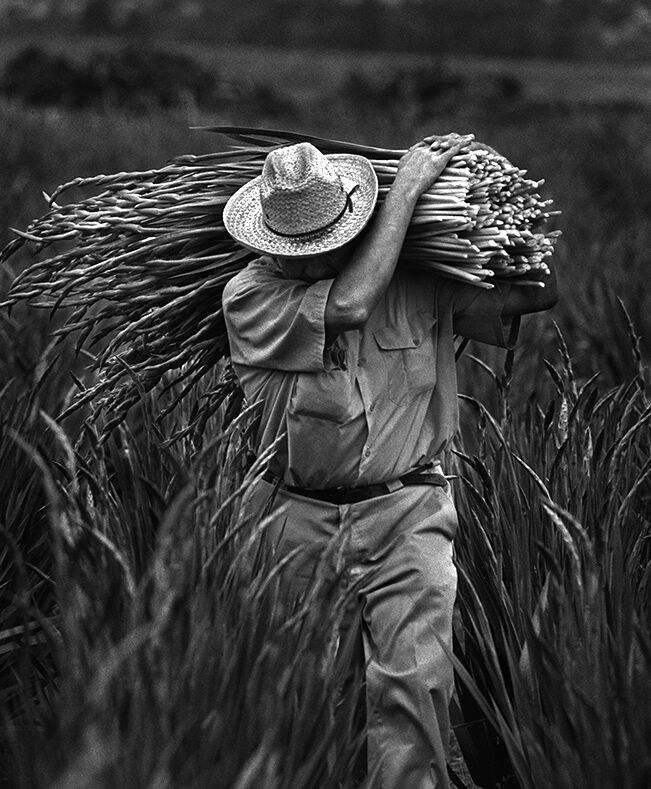
GLADIOLUS HARVESTJose Velasquez carries an armload of flower buds at that will be shipped across the nation. Like many migrant farm workers from Mexico, he lives in a squatter’s hovel at the edge of the field. A perfect climate and imported water make the earth bloom in San Diego County, but little is done for the foreign-born laborer.
October, 1987; Encinitas
Don Bartletti
But the biggest story of all was right here in his backyard. After the Mexican peso collapsed in the late 1970s, migrants were crossing the US-Mexico border at a rapid pace. They came by bridge and through sewage. “The freeway was a slaughterhouse,” says Bartletti, whose photos of running families were used by CalTrans to create the evocative black-and-yellow freeway signs we see today. “It was an epic migration of people who were too hungry to knock.”
His approach to photojournalism lies somewhere between visual anthropology and a scavenger hunt. In Honduras, for example, he photographed children at the dump competing with vultures for scraps. A 10-year-old victim of gang violence was cleaned and dressed in her Communion gown for burial. It earned him a Pulitzer.
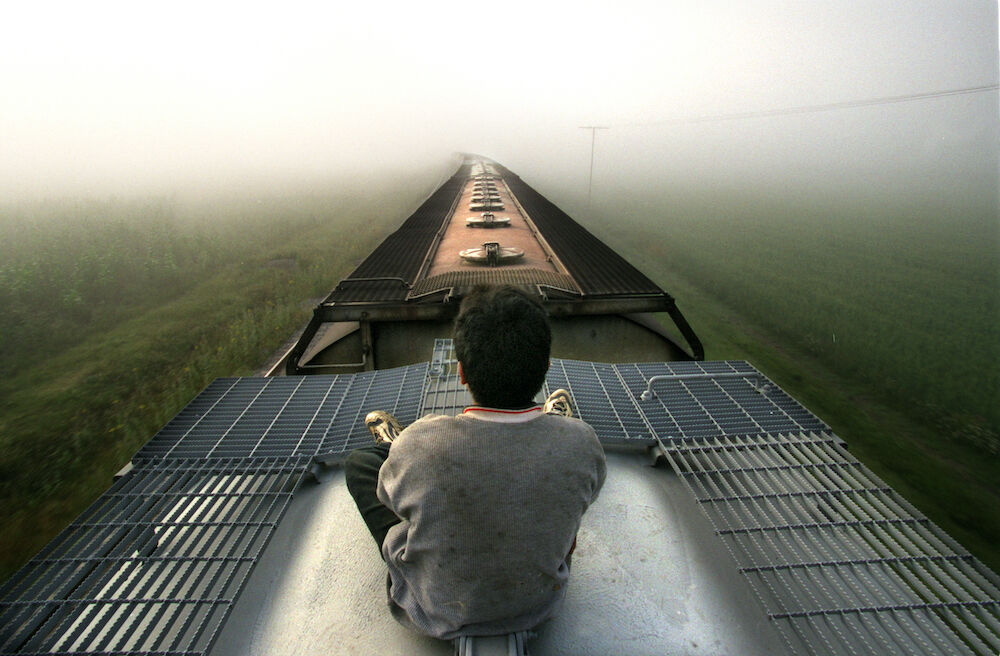
ENRIQUE’S JOURNEYA Central American boy rides atop a freight train as it heads into a fog bank at dawn near Mexico City. He was shivering and sobbing uncontrollably. The train line that migrants call “The Beast” is a major migratory route for undocumented Central American children hoping to reunite with parents or loved ones in the U.S.
September, 2000; Teotihuacan, Mexico
Don Bartletti
“I took all of these pictures with tears in my eyes,” he says.
Now retired, Bartletti lives in the Vista house he built with his father as a teenager. Second to his photographic pursuits is landscaping: He personally planted some 200 trees on the property. “We live in a climatic wonderland,” he says. “It’s my reward.”
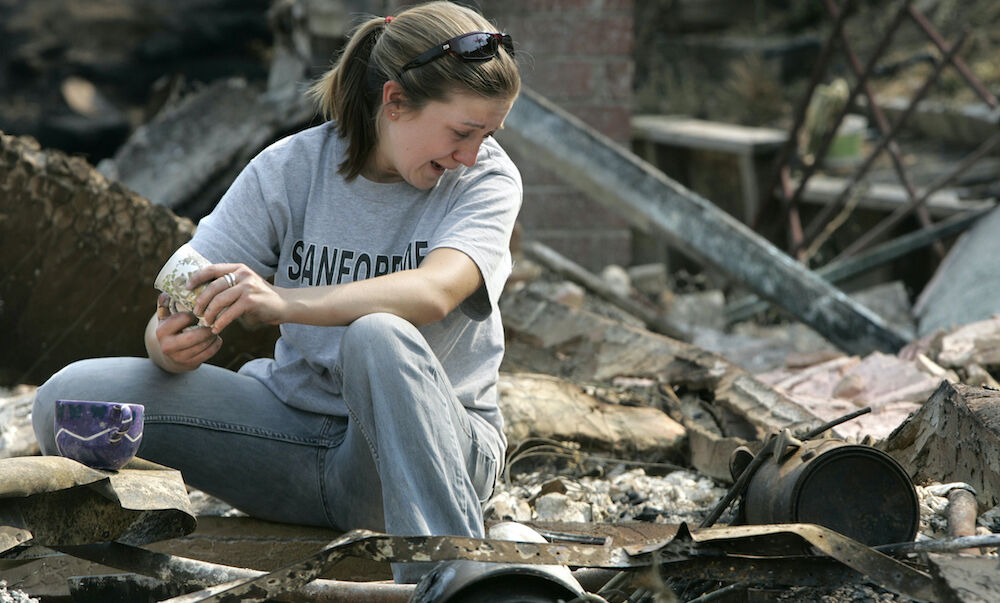
SOMETHING LOST – SOMETHING FOUNDTress Goodwin sobs at the memories lost and found in the ruins of the house where she grew up.
PARTNER CONTENT
October, 2007; Rancho Bernardo
Don Bartletti
